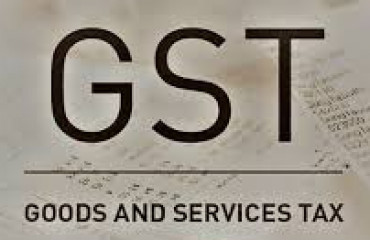
On the 6th anniversary of GST, Finance Minister Nirmala Sitharaman said that tax rates have been lower on common-use items under GST compared to pre-GST rates. She refuted the nickname 'Gabbar Singh' tax rates and highlighted the reduction in taxes for consumers.
On the 6th anniversary of GST, Finance Minister Nirmala Sitharaman said that tax rates have been lower on common-use items under GST compared to pre-GST rates. She refuted the nickname 'Gabbar Singh' tax rates and highlighted the reduction in taxes for consumers.
On the 6th anniversary of the goods and services tax (GST) regime, Finance Minister Nirmala Sitharaman on Saturday said, on many common-use items, tax under the GST has been lower compared to the pre-GST era. She refuted the reference to GST as 'Gabbar Singh' tax rates. Instead, she said that GST has helped bring down the taxes for consumers by eliminating the cascading effect of 'tax-on-tax'. Also, GST has boosted the revenue of states.
On GST Day 2023, Sitharaman highlighted how common-use items have seen lower tax rates than compared to pre-GST rates.
She shed some light on items like tea, milk powder, sugar, edible vegetable oils, spices, and footwear (priced up to ₹500) attract taxes of 5% under GST, compared with earlier tax incidence of 6-10%.
Also, for hair oil, toothpaste, soaps, perfumes, and detergents, the average Pre-GST tax burden was almost 28%, which was brought down to 18% under GST.
She further added that average pre-GST taxation on common-use electrical items such as mixer grinders, refrigerators, vacuum cleaners, TV (up to 27 inches), and washing machines was around 31.5%, which came down to 12% under GST.
Moving on, she also said, "many bathroom & toilet fittings, doors, windows, and frames were earlier taxed at an average rate of 28%, and were brought down to 18%," adding, "movie tickets which were taxed at almost 35% were brought down to 12% (for tickets upto ₹100) and 18% (for tickets more than ₹100)."
Hence, she said, "So these are tangible numbers. So, somebody where to say, GST actually has brought in a burden and I don't want to repeat the full expression, but it is a fact that it is being called the 'Gabbar Singh' tax which is a shame because this country should know.. a step like GST actually brought relief to the common citizens."
Watch the full video here:
GST was launched on July 1, 2017.
Apart from Sitharaman, Hon'ble Governor of Maharashtra, Ramesh Bais said, "GST promotes cooperative federalism and reduces corruption and tax evasion."
Bais highlighted GST as a historic and revolutionary change in the country's indirect tax system. He He emphasized the need for GST to overcome the shortcomings of the old tax system, which had multiple taxes and complexities. Further, he praised GST for promoting cooperative federalism and reducing corruption and tax evasion.
Also, Bais emphasized that the GST reflects the values and aspirations of the country and is a tax that powers the building of our New India. He noted that the GST Collections are buoyant and consistent and stated that the tax collection by the Mumbai GST zone has crossed ₹87,500 crore, and that of Maharashtra State GST has crossed ₹41,462 crore in 2022-23. In conclusion, he called for a commitment to making GST more efficient, effective, and equitable.
Earlier, on Saturday, Finance Ministry's data showed that GST revenue collection came in at ₹1,61,497 crore in June 2023. It is for the fourth time, the gross GST collection has crossed ₹1.60 lakh crore mark. The average monthly gross GST collection for the first quarter of the FY 2021-22, FY 22-23 & FY 23-24 are ₹1.10 lakh crore, ₹1.51 lakh crore, and ₹1.69 lakh crore respectivelEa
